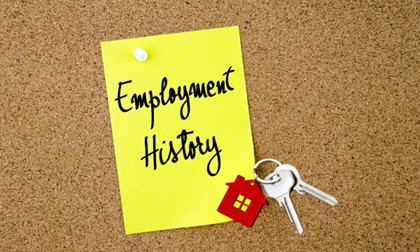Speed Your Mortgage Approval up by Following This Checklist
 Have you finally found your dream home after months of searching, and then you are told that the seller has received other offers? No buyer wants to find themselves in a bidding war against another buyer as it is a stressful situation. Being unprepared and not having your finances in order will make it even more stressful. Here are a few quick ways if you’re looking to speed up your mortgage approval process, here’s a checklist to help you prepare:
Have you finally found your dream home after months of searching, and then you are told that the seller has received other offers? No buyer wants to find themselves in a bidding war against another buyer as it is a stressful situation. Being unprepared and not having your finances in order will make it even more stressful. Here are a few quick ways if you’re looking to speed up your mortgage approval process, here’s a checklist to help you prepare:
· Review your credit report: Maintain a good credit score by paying bills on time, reducing existing debt, and avoiding new credit inquiries. Check your credit report for errors and make sure your credit score is in good shape. A good credit score can positively impact the approval and interest rate you receive.
· Gather financial documents: Gather all necessary paperwork beforehand, including pay stubs, tax returns, bank statements, and any other financial documentation. Having these readily available will expedite the application process.
· Save for a down payment: A larger down payment can reduce the risk for lenders, making them more inclined to approve your loan faster. It can also decrease the time needed for certain approval processes.
· Stay at your job: It’s best to avoid changing jobs during the mortgage approval process.
· Avoid new credit: Don’t apply for new credit or take on new debt during the approval process.
· Don’t make big purchases: Avoid making large purchases, such as a car, during the approval process.
· Respond promptly to requests: Once you’ve applied for a mortgage, respond promptly to any requests from your lender. Delays often occur when there’s a lack of communication or slow responses to queries or requests for additional information.
· Work with a reputable lender: Choose a lender with a good reputation and experience in the mortgage industry.
· Get pre-approved: Consider getting pre-approved for a mortgage before house hunting to speed up the approval process.
Stay informed about the process and ask questions if you’re unsure about any step. Following this checklist can help speed up your mortgage approval process and make the process smoother and less stressful. Good communication with your lender is key to ensuring a smooth and expedited process.
 Getting a mortgage can potentially help your credit score, as long as you make your payments on time and in full each month. Payment history is one of the most important factors that influence your credit score, so consistently making your mortgage payments on time can have a positive impact on your credit score over time.
Getting a mortgage can potentially help your credit score, as long as you make your payments on time and in full each month. Payment history is one of the most important factors that influence your credit score, so consistently making your mortgage payments on time can have a positive impact on your credit score over time. When it comes to applying for a mortgage, lenders take various factors into account to determine your eligibility. One crucial aspect they consider is your employment history. Your employment history provides lenders with valuable insights into your financial stability, income consistency, and ability to repay the loan.
When it comes to applying for a mortgage, lenders take various factors into account to determine your eligibility. One crucial aspect they consider is your employment history. Your employment history provides lenders with valuable insights into your financial stability, income consistency, and ability to repay the loan.